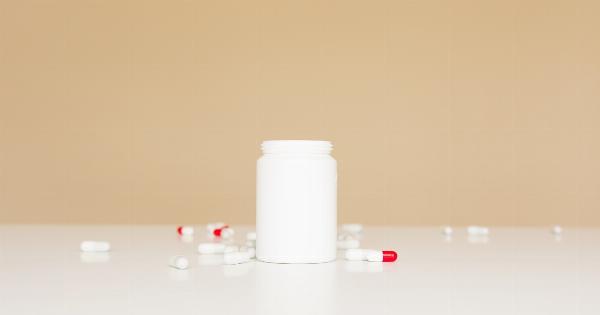Proper storage of medications is crucial to maintaining their efficacy and avoiding potential health risks. One common factor that can compromise the quality of medications is heat.
Exposing medications to high temperatures can cause them to degrade and lose their potency. To ensure that your medications remain effective and safe for consumption, it’s essential to take appropriate precautions to prevent spoilage due to heat. Here are some helpful tips:.
1. Store Medications in a Cool, Dry Place
Heat can accelerate the breakdown of chemical compounds in medications. As a general rule, it is best to store medications in a cool and dry place.
Optimal storage temperature can vary depending on the specific medication, so it’s always a good idea to consult the package insert or information provided by the pharmacist. However, most medications can be safely stored at room temperature, which is typically around 68-77°F (20-25°C).
2. Avoid Exposing Medications to Direct Sunlight
Direct sunlight can significantly increase the temperature of a medication’s storage area, potentially leading to spoilage.
To prevent your medications from being exposed to direct sunlight, store them in a cabinet, drawer, or any other enclosed space away from windows or other sources of sunlight.
3. Be Mindful of the Car
It’s common for people to carry medications with them, especially when traveling or running errands. However, leaving medications in a parked car, particularly on hot days, can be detrimental to their stability.
The temperature inside a parked car can reach excessive levels, causing medications to spoil. Remember to take your medications with you when leaving the car for an extended period, or consider using a cooler bag to maintain a cooler environment for your medications while on the go.
4. Avoid Storing Medications in the Bathroom
Although the bathroom may seem like a convenient location to store medications, it is not an ideal choice due to heat and humidity.
Bathrooms tend to have higher levels of humidity and fluctuating temperatures, which can accelerate the degradation of medications. Thus, it’s best to find an alternative storage space, such as a bedroom drawer or a kitchen cabinet.
5. Use an Insulated Container or Cooler for Travel
If you need to travel and bring your medications with you, using an insulated container or cooler is highly recommended, especially for medications that require refrigeration, such as insulin or certain antibiotics.
These containers help maintain a stable temperature for your medications, protecting them from excessive heat during transit.
6. Be Cautious with Mail-Order Medications
Mail-order medications are increasingly popular due to their convenience; however, the delivery process can expose medications to unfavorable conditions, including high temperatures.
If you regularly receive medications through mail order, make sure to promptly retrieve them upon delivery and store them appropriately to minimize potential heat exposure.
7. Check the Medication’s Stability
Some medications, particularly liquids or suspensions, may have specific storage requirements to maintain their stability. Always check the label or package insert for storage instructions provided by the manufacturer or consult with your pharmacist.
For instance, certain medications may require refrigeration even if they are generally stored at room temperature.
8. Pay Attention to Expiry Dates
Expired medications may not only be less effective but can also pose potential risks to your health. Heat can accelerate the degradation process, making it even more critical to pay attention to expiry dates.
Regularly check and discard any medications that have exceeded their expiration date to ensure optimal safety and effectiveness.
9. Seek Professional Advice
If you have any concerns or questions about the appropriate storage of your medications, don’t hesitate to consult with your healthcare provider or pharmacist.
They can provide specific guidance based on the medications you are taking and your unique circumstances.
10. Travel with a Medication Information Sheet
When traveling, it’s a good idea to carry a medication information sheet that includes details about your medications, such as their names, dosages, and storage instructions.
This sheet can be helpful in case of an emergency or if you need to seek medical assistance while away from home. It can also serve as a reminder about the necessary storage conditions for your medications.
By following these guidelines, you can help ensure that your medications remain safe and effective, even in challenging environmental conditions.
Proper storage and vigilance are key to preventing spoilage due to heat and maintaining the integrity of your medications.





























